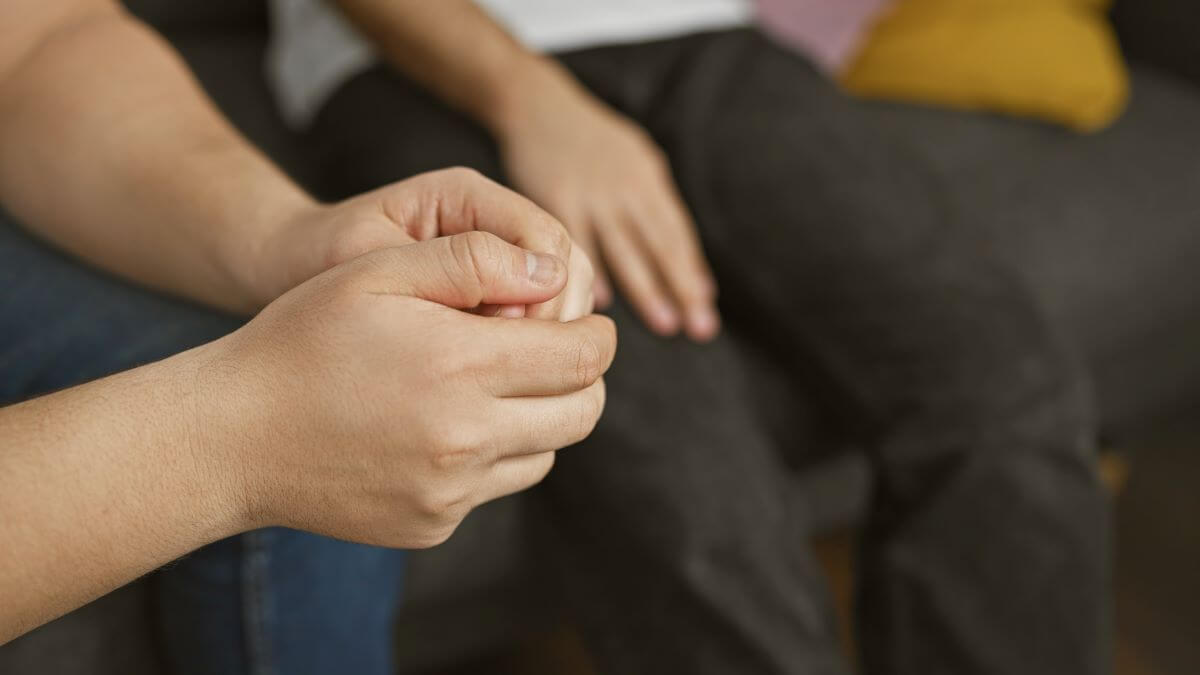By: Jeffrey Munroe
One simple key to emotional health is found in telling our stories. We need to tell our stories, especially our stories of loss.
My book Telling Stories in the Dark: Finding Healing and Hope in Sharing our Sadness, Grief, Trauma, and Pain, is a collection of stories of people transforming their pain into something redemptive. Yet as I’ve told those stories, I’ve heard other stories of people who have gotten stuck in their pain.
I asked a group of men gathered at a church if any of them could recall a time when, after tragedy struck, they focused on the question: “Why?” Immediately, a man in his 90s spoke: “When I was a kid,” he said, “I was an only child and more than anything else I wanted to have a little brother. Finally, it happened. My mother got pregnant and my baby brother was born. He died when he was about 10 months old. I have a vivid memory of being in a car on the way to the church for his funeral and sobbing out, ‘Why? Why?’ Why had this happened? His death made no sense to me.”
Our group sat in silence, absorbing this powerful memory. After a minute I asked the man how long ago this had happened.
He then did some mental math and said, “88 years.” The pain was still real to him, the wound still fresh. “I tried to talk about it once,” he said. “It was in this very room about 30 years ago. I couldn’t do it. I could not find the words.”
I think about that when I hear people talk about “getting over” grief. The wounds don’t go away and we don’t “get over” a wrenching loss. Are we supposed to forget our loved ones or pretend they didn’t exist?
This spring, I taught a four-week course about telling our stories and during the last session a woman spoke up. “When my husband died,” she said, “my friends told me not to talk about it. They said nobody wanted to hear about it and that I needed to get on with my life.” She paused for a second and then said, “Now I know they were wrong.” Our class provided a safe space for her to tell her story of loss. Our classroom became therapeutic.
Instead of asking, “Why did this terrible thing happen?” we may ask, “What do I do with this terrible thing I’ve been given?”
Jeffrey Munroe
When loss overwhelms, burying our feelings can be a short-term way to survive. But burying our emotions is never a way to thrive long-term. The path to healing and emotional wholeness does not lie in denying pain. The path to healing and hope lies in embracing our pain, taking it into our being, and letting it make us more sensitive and empathic. I use Frederick Buechner’s concept of the stewardship of pain in my book. To be a good steward of our pain means changing the question we ask from “Why?” to “What?” Instead of asking, “Why did this terrible thing happen?” we may ask, “What do I do with this terrible thing I’ve been given? How do I take it in to my being? How can I use it redemptively, for the sake of others?”
A few weeks ago I was invited to preach and share about my book at a church in Ontario. When our book discussion ended that Sunday evening, a man approached and said, “I have a story to tell you. I’m not sure I should tell it—I’ve really never told it to anyone.” Then he said this: “My family moved to Canada from the Netherlands when I was twelve-years-old, over 60 years ago. Two years later, when I was fourteen, my father was killed in an automobile accident. My mother never said his name again and forbade me from saying his name.” There were tears forming in the man’s eyes as he told this story. I felt so bad for him. Imagine being a young teenager, losing your father, and then being told you cannot speak his name. In essence, his mother was outlawing his feelings, telling him not to acknowledge them, to pretend they didn’t exist.
Some measure of healing happened for each of these people when they told their stories.
A wonderful gift we can give each other is the creation of safe spaces for storytelling. What if we were to dedicate ourselves to the radical hospitality creating such spaces requires? What might our families and communities look like then?
No matter how deep our wounds may be, simply telling our stories is the first step in transforming our pain. Creating space for that to happen is a great gift we can give to each other.
About the author: Jeffrey Munroe is editor of the Reformed Journal and author of Telling Stories in the Dark.









Thanks Jeff, for these very helpful thoughts and stories.
Thank you for this article. Something I’ve been thinking about lately is the act of bearing witness to someone’s pain…to our own pain and what it feels like to share our stories in a safe space.